|
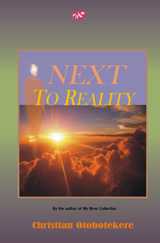 Next
to Reality Next
to Reality
In this collection entitled Next to
Reality and described as 'a delicious dish of environmental / cultural
experience' Christian Otobotekere takes the reader on a mind�s journey into
phases of events and moods where life is re-experienced on an imaginary
threshold that is next or alternative to reality. Through the philosophical
hindsight that understands the condition of man on earth and his
relationship with nature, the poet recreates vivid images of past glamour. The
platform for this imaginative exploration is poetry while the vehicle for
this mental perception is the mind which the poet sees as: 'The light of my
being/ Illuminating the world/ Ever casting around live rays/ Of sound, colour
and beauty...' Memories flash as 'bracing winds and
fawning waves' - timeless and immortal sources of joy that uplift the human
spirit.
Publishers:
African
Books
Network
 Trilogy Trilogy
This volume presents a general view of Chin
Ce's three works of fiction. Read together the authorial voice is
perceived in the usually humorous but disturbing notes on African
environment, citizenship and leadership issues.
Publishers:
African
Books
Network
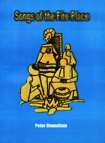 Songs
of the Fireplace Songs
of the Fireplace
In Songs of the Fireplace
Onwudinjo focuses on the tribulations and triumphs of the childless woman in an African patriarchy. Structured as ballads, these
poems tenderly evoke the plight of an Igbo housewife and her struggles to
hold her ground in the face of domestic and societal aggression towards her
childlessness situation. It is said that with these ballads, which lure
the reader to their wealth of ideation, the Ugandan poet Okot p'Bitek
has finally begotten a literary son in Nigeria's Peter Onwudinjo.
Publishers:
Wusen Ltd
 Eclipse
in Rwanda Eclipse
in Rwanda
Eclipse in Rwanda is a
metaphor for the litany of conflicts ravaging Africa, from the backstreets
of villages through the cities and corridors of political power. Joe Ushie, the poet,
brings freshness and maturity to enliven his metaphors and neologisms. Puns
and sounds create new levels of meaning. Ecipse in Rwanda is a
remarkable addition to Africa's search for peace and a new dawn since
colonialism and imperialism.
Publishers:
Kraftgriots
Ltd
 Millennial Millennial
Ce's third volume of poetry since two
decades of Full Moon and African Eclipse is, in his words, 'the product of additional years of travel and sojourn through
the lands of, rightly, my mothers and fathers.' These journeys are physical and, even more importantly, spiritual - the latter
bordering on aspects of a heritage that transcends spatial and temporal
dimensions of reality at least for 'all of the human family.' In lucid
viewpoints and gentle rebukes, the poet makes these memories blossom a
new awareness of reality that we find in The
Visitor.
Publishers:
African Books
Network
 Para
Vasco: poems from Guinea Bissau Para
Vasco: poems from Guinea Bissau
Para Vasco (For Vasco) is
the first in Heaventree's series of translations of Lusophone African
poetry. Dedicated to Vasco Cabral, the late freedom fighter, politician and
man of letters, this collection, presented in Portuguese and English,
represents the first opportunity for the English-speaking world to read the
poetry of Guinea-Bissau. Beginning with poems of the war for
independence, and moving through the postcolonial period to highlight
contemporary writers its diversity of styles and gradual unshackling of
poetry from the imperatives of the anticolonial struggle make it a
significant contribution to the growing canon of West African literatures.
Publishers:
Heaventree
Press
 The
Visitor The
Visitor
Set in a modern third-world nation-state, Chin Ce's third fiction is here concerned with the quest for wholeness
signified by the hero's retrieval of a lost memory. This story which intertwines
three dimensions of existence: past, present and future is however not so much concerned with the follies and frailties of human
conduct as the inexorable growth that attends human actions and
pushes the frontiers of existence beyond the mundane.
Publishers:
African Books Network.
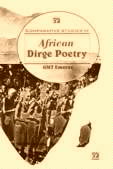 African
Dirge Poetry African
Dirge Poetry
An important contribution to research in African literature leading to a
theory of African dirge poetry drawn from constant recurring points in
that genre of writing. We meet, in this seminal work, various categories
of African mourners. They are the conjurers of images and weavers of
emotions manipulating human feelings and sensitivity by such admirable
craftsmanship as can only be known to those gifted bards of their age.
Publishers:
African Books
Network
 Children
of Koloko Children
of Koloko
Children of
Koloko marks
at initial reading as something of a childhood story of innocence, but it
really isn�t. What we have are character types presented
through the hero, Yoyo, and other adjuncts of the
central personage: Dickie and Buff. So we have three youngsters
struggling to
negotiate their passage into adulthood and are
keenly aware of the deficiencies of their environment - and themselves.
Publishers:
African Books
Network.
Review
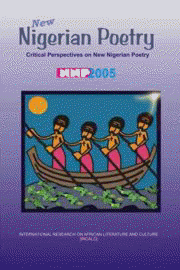 New
Poetry Vol 1 No. 2 New
Poetry Vol 1 No. 2
The 2005 issue of the New Nigerian Poetry
Journal, NNP, goes with a brilliant dedication to retiring professor of
English, Romanus Egudu, of the University of Benin. According to the
editors, this is "in recognition of his contributions to the
development of African literature (in general) and Nigerian poetry in
particular." NNP 2005 features new studies of such poets as
Egudu, Enekwe, Ofeimun and the late Ken Saro
Wiwa. The 2005 NNP journal also presents a literary showcase: the Chat Forum
hosted by project editor GMT Emezue with Nigerian poet and novelist Chin Ce
as guest.
Publishers:
Progeny
Press
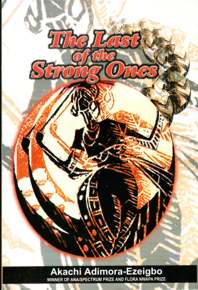 The
Last of the Strong Breed The
Last of the Strong Breed
This engrossing tale recreates the old times in
a town
In eastern Nigeria. The Last of
the Strong Breed takes the reader on a sensational sequence of journeys.
Sometimes allegorical, sometimes
picturesque, into the hearts and hearths of individuals and families
in a closely knit four-village community.
The narrative is set in the early
1900s, when British colonial administrators prowled
the
hinterland of the village called Umuga plundering, maiming and
killing at every turn in the name of pacification.
A work of lyrical power and
beauty, Akachi Ezeigbo�s novel revolves
round the lives of men like Obiatu and Okoroji and women like Ejimnaka,
Onyekozuru, Chieme and Chibuka who represent the noble specimen of humanity,
fiercely irrepressible and unconquerable
even in death, yet full of the joy of living. The Last may also serve
as a study in complementary gender relations.
 The
Prisoners The
Prisoners
The Prisoners,
according to its author, Chris Nwamuo, is war literature since it was the
war that informed and motivated him. Many years after the Nigerian civil
war he feels that some of the experiences of the war are still evident
within the Nigerian society hence the need to articulate such experiences
for modern audiences. Those aspects of the war which still exist with the
society to this day are the problems of good leadership, inequality and
the widening gap between the rich and the poor. The play is all about four
jailed war deserters who in prison are subjected to starvation and inhuman
treatment, as the chief superintendent of prisons diverts food supplies
allocated to the prisoners for personal consumption. In the end the
prisoners revolt and take captive the prison officials.
 Publishers:
Tana Press Publishers:
Tana Press
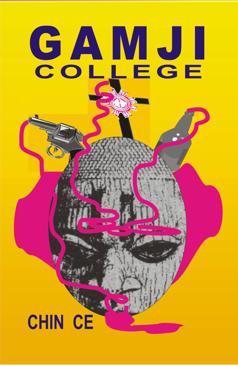 Gamji
College Gamji
College
A humorous collection of short fiction narratives by the author of
Children of Koloko. Here Chin Ce displays an admirable craft in dialogue
and portraiture of characters who reflect the modern sensitivities
of Africa's dying values.
Publishers:
African Books
Network
|
|
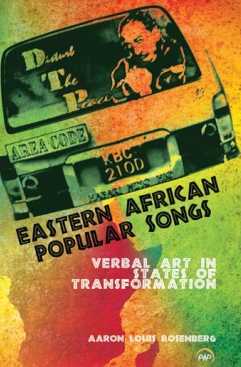 East
African Popular Songs East
African Popular Songs
Aaron Rosenberg�s study
constitutes a provocative reassessment of the relationship between African
songs and the literatures of Eastern Africa. The focus of the book is a
detailed analysis of language, form, and theme as they apply to a wide
spectrum of verbal art in the region. Toward this end literary and musical
works from throughout Tanzania, Kenya, Uganda, Zambia, Malawi, and the
Comoros Islands, among others, are comparatively examined in order to
determine and describe the salient ways in which such forms of creative
expression are deployed as devices which reflect and radically transform
prevailing ways and means of identity formation in and across communities in
the region. Using songs, poetry, novels, plays and short fiction in a
variety of languages, the author opens up new ways of looking at identity
paradigms in contemporary Eastern African contexts and the manners in which
people and populations whose lives extend across various �borders,� whether
ethnic, national, or class derived, develop �supercultural� senses of self.
Publishers:
Africa World Press
 Why
We Write: Conversations
with African Canadian Poets and Novelists Why
We Write: Conversations
with African Canadian Poets and Novelists
In this volume, African Canadian creative writers discuss the complexities
of the writing experience. Most of the writers interviewed here are
humanists: they see their work as serious depictions of the human
condition, admit that their works are informed by an African Canadian
ontology, and adhere to the notion that their books must delight and
instruct. These interviews, therefore, are valuable additions to the
creative process of the individual writers.
Apart from identifying how the writers� geographical and social origins have
influenced their work, these writers also respond to the exigencies of
craft, the manipulations of publishers, the criticism of readers, and the
absence of a clearly identifiable market for their works. The writers
include Austin Clarke, Bernadette Dyer, Althea Prince, Afua Cooper, M.
Nourbese Philip, Cecil Foster, Lawrence Hill, David Woods, George Elliot
Clarke, Wayde Compton, Robert Sandiford, Suzette Mayr, Claire Harris, Pamela
Mordecai, and Ayanna Black.
Publishers:
Tsar Books
 The
Last Battle and other Stories The
Last Battle and other Stories
Onuora Ossie Enekwe, former national vice
president of the association of Nigerian authors and currently professor
of dramatic literature at the University of Nigeria, demonstrates a
versatility of literary craft in this collection of short stories where
each story strikes a a unique chord in the reader's mind. Enekwe's style
has been said to critically hinge on the effective manipulation of
ironies which generally underlie the actions of his protagonists. The
tragic notes which mark his stories are never awkward with this
remarkable literary talent that has been compared with America's Stephen
Crane.
Publishers:
Afa Press Ltd
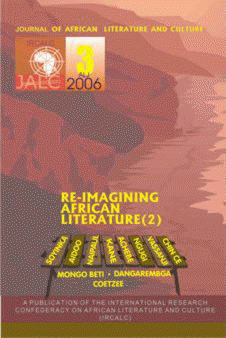 African Literature 3 African Literature 3
African Literature and
Culture ALC-ALJ 2006 edition comes with fourteen essays,
commentaries and reviews by contributors from Canada, United States, Ghana,
Cameroon, Nigeria, South Africa and the United Kingdom in what promises to
become a major referential guide to
critical appreciation of African literature in the
years ahead, says IRCALC editors in their introductory commentary to the
journal volume. Papers in the 2006 issue of the
Journal of African Literature and Culture, JALC-ALJ include critical
reappraisals of the works of notable younger and older African writers such
as Chinua Achebe, Wole Soyinka, JM Coatzee, Chin Ce, Dangaremgba, Vassanji,
Ama Ata Aidoo, Mongo Beti to mention but a few. In
their preface the editors propose a wholistic approach to criticism of
African literature in spite of its regional and national groupings and the
reimagining of issues of African modernity in relation to contemporary
definitions of the Black world.
Publishers:
Progeny
Press
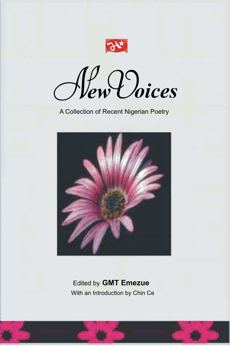 New
Voices (Recent Nigerian Poetry) New
Voices (Recent Nigerian Poetry)
The timely appearance of this anthology of African poetry has expanded our
literary frontiers, marking a resurgence of some new and fairly known poetry
in the beggarly charted field of African poetry appreciation. On the
distinction of this collection, editor GMT Emezue notes: 'We have
followed an arrangement markedly distinct from older attempts at
demarcations along themes and convergence of time all too convenient. 'Our intention ...is to present a
wide list of materials that will appeal to all audiences of whatever
academic interests or levels, in whatever age bracket they may fall and from
what ever nationalities they may come.' The anthology, which is the latest
of African poetry, features some rising and popular Nigerian voices such as
Enekwe, Ce, Raji, Onwudinjo, Adeoti, Chylekezi, Adegoke, Bassey and Ushie to
mention but a few.
Publishers:
African Books
Network
 Mma Collection of Poems Mma Collection of Poems
A new poetry collection entitled Mma and
other Poems by Joy Etiowo published by African Books. The
Mma collection features a total of 27 poems and reflect the
sensitivity of the new generation of African poetry in the clear, lucid
manner of expression and the lyrical quality of its entire poetic
breath, says Nigerian poet and novelist Chin Ce in his introduction to
the published volume.
Publishers:
African Books
Network
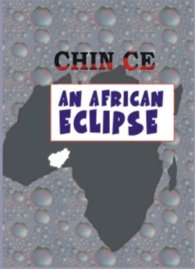 An
African Eclipse and other Poems An
African Eclipse and other Poems
An environmental Reading of Chin Ce�s African Eclipse
poetry traces a transition and advancement
from social
consciousness through psychological growth,
exile and progress.
�A Farewell�
highlights this movement in a prefatory manner.
The three ways: left, right and middle signify three choices of two extremes
and a middle course.
Publishers:
African
Books
Network
 Kingdom
of Empty Bellies Kingdom
of Empty Bellies
Kei
Miller's poems have been variously described as wonderfully imagined and
skilfully executed; a radiant utterance that speaks of (Caribbean) island
experiences and gender politics ...full of empathy humour and insight.
Kingdom of Empty Bellies is no doubt the prime work of an extraordinary
new voice singing with clarity and grace. 'There's capability here,' a
critic says, 'negative capability, the only kind that counts. And a spirit
of grace that ...turns you round and burns your tongue.'
Publishers:
Heaventree
Press.
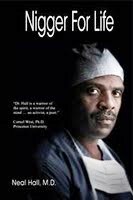 Nigger For Life Nigger For Life
Nigger For Life, by Neal Hall, is an anthology
of verse reflecting the poet�s painful, later life discovery, that in
�unspoken America," race is the one thing on which one is �first�
judged, by which he is �first� measured and against which his life and
accomplishments are metered. In short, race is everything to do with
accessing choice, opportunity, power and freedom in America. According
to Beth Richie of the University of Illinois at Chicago, the �images
and issues addressed in Nigger For Life are tremendously
important to our [African American] people and the academic field of
African American Studies.�
Nigger For Life website:
www.surgeonpoet.com
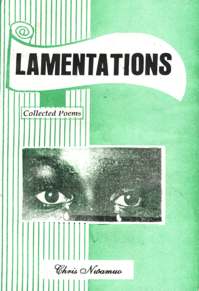 Lamentations Lamentations
Chris Nwamuo's collection,
Lamentations, nurtured away from the Nigerian environment provides him with
a new impetus, new vision from which he objectifies the Nigerian context.
Therefore he can produce poems like "Song of Creation," "New Yam", "Bound In
Chains", "Tears of Sorrow", "Song of Peace", "Biafra Forgotten�, Lament for
Life," "Pol Ndu Remembered", all in which "everlasting green plant/in
contact with mother earth", becomes the "good tape we embrace in another
year" with thanks (ndewo). While, as "the wheel of death rolls by" our
hearts "pierce with scores of swords in a battle of thoughts", till we reach
"the enclave �loaded with fire. . . " till the hills "are green again."
Publishers: AP Publications
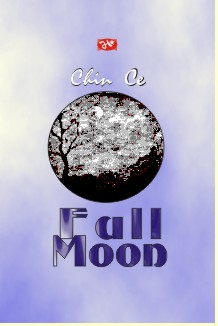 Full
Moon Full
Moon
Full Moon volume of
poetry is all about taking imaginative action, letting the landscape of
images free to explore horizons beyond everyday
preoccupations. In this journey both poet and
reader are engaged in a discourse, a communion of sorts, running through
time or harking back in the past. In Full Moon we are invited to a world
where perpetual insights, the advancement of imaginative
faculties, take precedence. It begins from the point we express the nudge to find inner
freedom which when illuminated fructifies in the release of new images. Old viewpoints lose or add to their original meaning and
a whole fresh vista of cognition emerges.
Publishers:
African Books
Network
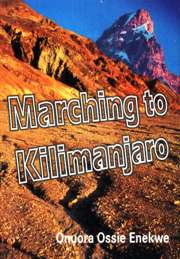 Marching
to Kilimanjaro Marching
to Kilimanjaro
Marching to Kilimanjaro
is not a mere annotation of African topography. The contrasts extend to
other dimensions: man- woman, Europe-Africa, city-village. Throughout,
Enekwe cuts the figure of that Okigboesque prodigal in search of roots, so
eager to find that primordial cord in the navel of the earth. If Okigbo
makes supplications to Mother Idoto, Enekwe bends both knees before
Agbogho Mmonwu; if Okigbo's own guardian angel is a �watery presence",
Enekwe's is a "dancing jewel". To both poets, the city is flight, exile, and
a "mighty prison" with "stony colors". The village is not only where the
hearth is; it is also where Earth resides...
Publishers:
Afa Press
|

